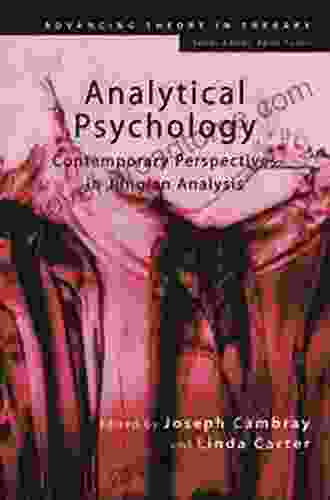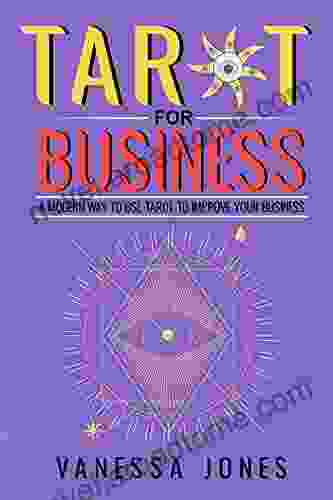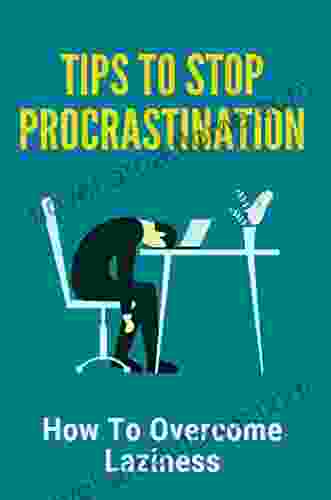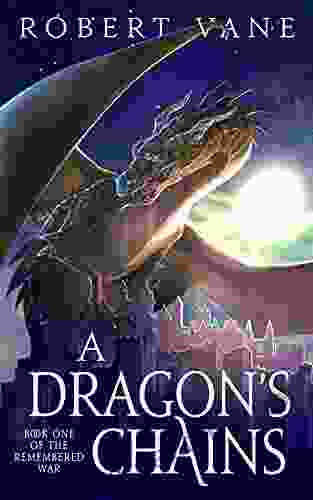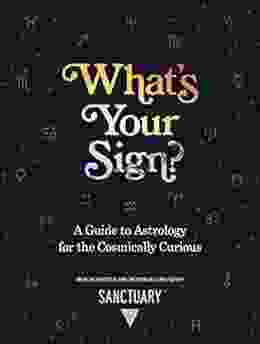Re-Encountering Jung: Analytical Psychology and Contemporary Psychoanalysis

In the ever-evolving landscape of psychotherapy, Jungian analytical psychology continues to hold a unique and influential position. Developed by the Swiss psychiatrist Carl Jung in the early 20th century, analytical psychology is a depth psychology that emphasizes the importance of the unconscious mind, archetypes, and the process of individuation.
While Jungian psychology has been criticized for its speculative nature and lack of empirical support, it has also been praised for its insights into the human psyche and its potential for personal growth and healing. In recent years, there has been a growing interest in Jungian psychology from contemporary psychoanalysts, who are seeking to integrate its insights into their own work.
This book, Re-Encountering Jung: Analytical Psychology and Contemporary Psychoanalysis, offers a comprehensive overview of the history, key concepts, and clinical applications of Jungian analytical psychology, as well as its relationship to contemporary psychoanalysis.
5 out of 5
| Language | : | English |
| File size | : | 1078 KB |
| Text-to-Speech | : | Enabled |
| Screen Reader | : | Supported |
| Enhanced typesetting | : | Enabled |
| Word Wise | : | Enabled |
| Print length | : | 240 pages |
Carl Jung was born in Switzerland in 1875. He studied medicine at the University of Basel and began his career as a psychiatrist at the Burghölzli Hospital in Zurich. In the early 1900s, Jung became increasingly interested in the unconscious mind and its role in mental health. He developed a new approach to psychotherapy that he called "analytical psychology."
Analytical psychology is a depth psychology that emphasizes the importance of the unconscious mind, archetypes, and the process of individuation. The unconscious mind, according to Jung, is a vast reservoir of thoughts, feelings, and memories that are not accessible to conscious awareness. Archetypes are universal patterns or symbols that are found in all cultures and that represent the collective unconscious. Individuation is the process of becoming more aware of the unconscious mind and integrating its contents into conscious awareness.
Jung's work was highly influential in the development of psychoanalysis. However, he eventually broke away from Freud and founded his own school of psychology. Jungian analytical psychology has continued to develop over the years, and it is now a widely respected and practiced form of psychotherapy.
The following are some of the key concepts of Jungian analytical psychology:
- The unconscious mind: The unconscious mind is a vast reservoir of thoughts, feelings, and memories that are not accessible to conscious awareness. Jung believed that the unconscious mind is the source of creativity, dreams, and other forms of psychic phenomena.
- Archetypes: Archetypes are universal patterns or symbols that are found in all cultures. Jung believed that archetypes represent the collective unconscious, which is a shared reservoir of knowledge and experience that is inherited from our ancestors.
- Individuation: Individuation is the process of becoming more aware of the unconscious mind and integrating its contents into conscious awareness. Jung believed that individuation is a lifelong process that leads to a greater sense of self-awareness and fulfillment.
- Dream interpretation: Jung believed that dreams are a window to the unconscious mind. He developed a method of dream interpretation that uses symbols and archetypes to uncover the hidden meaning of dreams.
- Transference and countertransference: Transference is the process by which a patient unconsciously redirects feelings and attitudes from their past relationships onto the therapist. Countertransference is the process by which the therapist unconsciously redirects feelings and attitudes from their own past relationships onto the patient. Jung believed that transference and countertransference are important factors in the therapeutic process, and he used them to help patients gain insight into their unconscious motivations.
Jungian analytical psychology is used to treat a variety of mental health problems, including:
- Anxiety
- Depression
- Trauma
- Relationship problems
- Eating disFree Downloads
- Addiction
Jungian analytical psychology can also be used to help people who are seeking personal growth and development.
Jungian analytical psychology and contemporary psychoanalysis are both depth psychologies that emphasize the importance of the unconscious mind. However, there are some key differences between the two approaches.
- Jungian analysts tend to be more interested in the collective unconscious than contemporary psychoanalysts. Jung believed that the collective unconscious is a shared reservoir of knowledge and experience that is inherited from our ancestors. Contemporary psychoanalysts, on the other hand, tend to be more focused on the personal unconscious, which is unique to each individual.
- Jungian analysts use a wider range of techniques than contemporary psychoanalysts. In addition to traditional psychoanalytic techniques, such as free association and dream interpretation, Jungian analysts also use active imagination, sandplay therapy, and other creative therapies.
- Jungian analysts tend to have a more optimistic view of human nature than contemporary psychoanalysts. Jung believed that humans have the potential for growth and change. Contemporary psychoanalysts, on the other hand, tend to be more focused on the limitations of human nature.
Despite their differences, Jungian analytical psychology and contemporary psychoanalysis share a common goal: to help people understand themselves and their relationships with others. By integrating the insights of Jungian psychology into contemporary psychoanalysis, therapists can offer their patients a more comprehensive and effective treatment experience.
Jungian analytical psychology is a rich and complex body of work that has much to offer contemporary psychoanalysis. By understanding the key concepts of Jungian psychology and its clinical applications, therapists can better help their patients understand themselves and their relationships with others.
This book, Re-Encountering Jung: Analytical Psychology and Contemporary Psychoanalysis, is an invaluable resource for anyone who is interested in learning more about Jungian psychology and its relationship to contemporary psychoanalysis. With its clear and comprehensive explanations of Jungian theory and practice, this book is sure to become a classic in the field.
5 out of 5
| Language | : | English |
| File size | : | 1078 KB |
| Text-to-Speech | : | Enabled |
| Screen Reader | : | Supported |
| Enhanced typesetting | : | Enabled |
| Word Wise | : | Enabled |
| Print length | : | 240 pages |
Do you want to contribute by writing guest posts on this blog?
Please contact us and send us a resume of previous articles that you have written.
 Book
Book Novel
Novel Page
Page Chapter
Chapter Text
Text Story
Story Genre
Genre Reader
Reader Library
Library Paperback
Paperback E-book
E-book Magazine
Magazine Newspaper
Newspaper Paragraph
Paragraph Sentence
Sentence Bookmark
Bookmark Shelf
Shelf Glossary
Glossary Bibliography
Bibliography Foreword
Foreword Preface
Preface Synopsis
Synopsis Annotation
Annotation Footnote
Footnote Manuscript
Manuscript Scroll
Scroll Codex
Codex Tome
Tome Bestseller
Bestseller Classics
Classics Library card
Library card Narrative
Narrative Biography
Biography Autobiography
Autobiography Memoir
Memoir Reference
Reference Encyclopedia
Encyclopedia Timothy Ballard
Timothy Ballard Richard Brookhiser
Richard Brookhiser Richa Jain Kalra
Richa Jain Kalra Robert M Hendrickson
Robert M Hendrickson Rick Wiebe
Rick Wiebe Stephen Wilson
Stephen Wilson Rao H Andavolu
Rao H Andavolu Richard Diedrichs
Richard Diedrichs Raven Kaldera
Raven Kaldera Rodney Kite Powell
Rodney Kite Powell Roy Diblik
Roy Diblik Tim O Brien
Tim O Brien William F Buckley Jr
William F Buckley Jr Scot Mcknight
Scot Mcknight Vickie Robertson
Vickie Robertson William Archer
William Archer Sergio S Dorje
Sergio S Dorje Sherry Jones Mayo
Sherry Jones Mayo Robert Crosby
Robert Crosby Sarah Hartsig
Sarah Hartsig
Light bulbAdvertise smarter! Our strategic ad space ensures maximum exposure. Reserve your spot today!

 Lawrence BellUnveiling the Essence of Local Architecture: A Literary Journey into Place,...
Lawrence BellUnveiling the Essence of Local Architecture: A Literary Journey into Place,...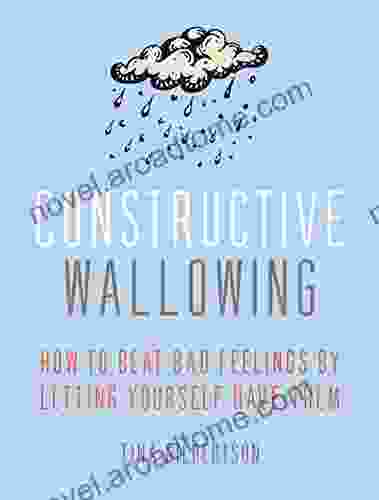
 Dalton FosterHow To Beat Bad Feelings By Letting Yourself Have Them: A Revolutionary Guide...
Dalton FosterHow To Beat Bad Feelings By Letting Yourself Have Them: A Revolutionary Guide... Roger TurnerFollow ·6.2k
Roger TurnerFollow ·6.2k Herb SimmonsFollow ·11.5k
Herb SimmonsFollow ·11.5k Thomas MannFollow ·17k
Thomas MannFollow ·17k Emilio CoxFollow ·5.9k
Emilio CoxFollow ·5.9k Finn CoxFollow ·17.5k
Finn CoxFollow ·17.5k Douglas AdamsFollow ·19.5k
Douglas AdamsFollow ·19.5k Eli BrooksFollow ·2.8k
Eli BrooksFollow ·2.8k Branden SimmonsFollow ·8.2k
Branden SimmonsFollow ·8.2k

 Eli Brooks
Eli BrooksOver 700 Organic Remedies Shortcuts And Tips For The...
: Embracing the Power of...

 Carter Hayes
Carter HayesUnveiling the Unofficial Political Religion of India: A...
Embark on an...
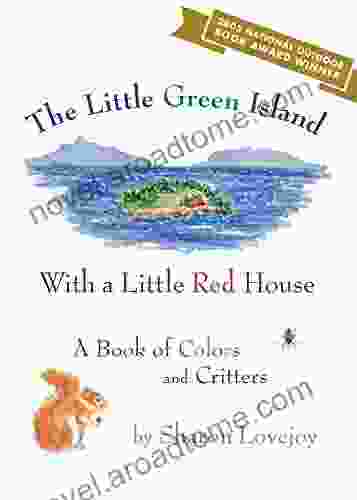
 Colin Richardson
Colin RichardsonOf Colors and Critters: A Journey Through the Animal...
In the tapestry of...
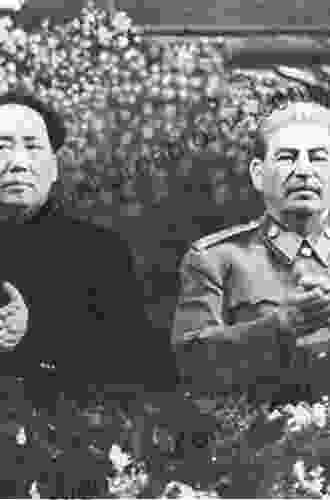
 Harry Hayes
Harry HayesUnveiling the Hidden Truths: Mao, Stalin, and the Korean...
Step into the enigmatic realm of the 20th...
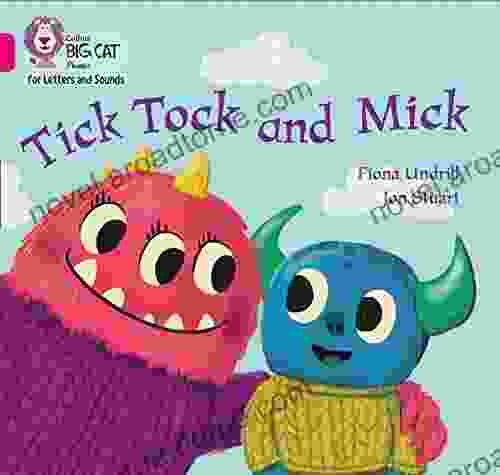
 George Bernard Shaw
George Bernard ShawBand 1b Pink: A Journey Through the World of Reading
Band 1b Pink is a...
5 out of 5
| Language | : | English |
| File size | : | 1078 KB |
| Text-to-Speech | : | Enabled |
| Screen Reader | : | Supported |
| Enhanced typesetting | : | Enabled |
| Word Wise | : | Enabled |
| Print length | : | 240 pages |


